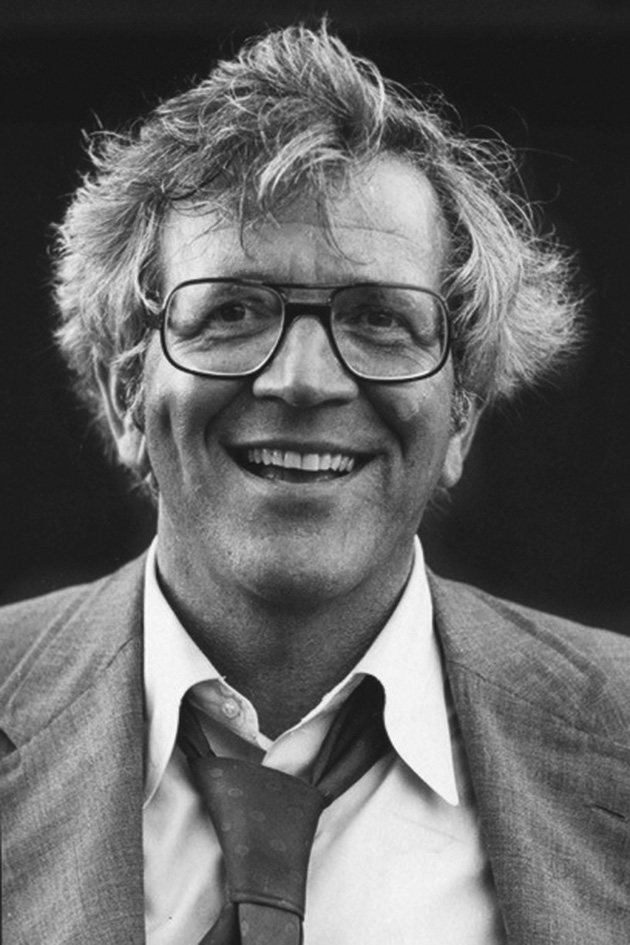Norman Lezin ’48

Emeritus Trustee Norman Lezin was an optimist who always saw the glass as half full. He was born in Cleveland, Ohio, and his family moved often, relocating to new postings for his father’s work as an electrical engineer in the U.S. Navy. After graduating from Seattle’s Queen Anne High School, Norm took a solo bicycle tour across Canada.
At Reed, he majored in political science, but his studies were interrupted by the war and he enlisted in the army in 1943. Norm served in the Pacific theater in military intelligence under the command of Douglas MacArthur. After the war, he returned to Reed, where he wrote his thesis, “A Consideration of Federal Reduction in Force Procedures at the Bonneville Power Administration,” with Prof. Charles McKinley [political science 1918–60] advising. It was at Reed that he met and married Margaret Salz ’45.
The couple moved to Santa Cruz in 1948 so that Norman could spend the summer working at his father-in-law’s tannery. He had contemplated a career in academia or public service, but the craft of making fine leather grew on him, and within a couple of years he was named president of the A.K. Salz Company. He expanded the small artisanal operation into an international business.
Norman drew criticism in Santa Cruz for hiring African Americans at the tannery and leading civil rights sympathy rallies. His relentless energy, optimism, and imagination drove the launch of many internationally acclaimed leathers. Brands like Coach, Red Wing, Dr. Martens, and Birkenstock achieved huge success based on leathers from Santa Cruz. Salz’s production peaked after the movie Midnight Cowboy was released in 1969, creating an insatiable demand for cowboy boots. The tannery was expanded to 400 employees and operated around the clock.
Norman was a practical environmentalist, long before it was a popular stance. In 1971, he offered to finance bicycles for his employees with company-subsidized loans, with the goal of getting employees out of their cars. Over time, factories and then tanneries migrated to Asia in search of cheaper labor. When Salz closed its doors in 2001, it was the last remaining tannery west of the Mississippi River.
Norman entered the political scene unintentionally while petitioning the planning department to correct the misspelling of his street name. Though he couldn’t convince them to make the change, his compelling arguments were so well received that the city employees suggested he run for city council. In 1962, he won a seat on the council, and two years later was elected mayor of Santa Cruz. He served as president of the Santa Cruz Citizens’ Health Council, was appointed to the California Industrial Welfare Commission by Gov. Edmund G. Brown Sr., served as a Democratic superdelegate to the 1956 national convention, and chaired the Santa Cruz Planning Advisory Committee. In 1989, he and his wife were named Man and Woman of the Year by the Santa Cruz Chamber of Commerce. Twelve years later, he received the award again.
Norman was quick-witted and wonderfully irreverent. While he was serving as the mayor, a heckler shouted, “Lezin, you’re a Jewish Communist!” Without hesitation Norman quipped, “You’re half right, but I won’t tell you which half.” He was an avid sailor, a passionate but impatient fisherman, and a lifelong member of the Santa Cruz Yacht Club. A strong advocate of a harbor at Twin Lakes, he later served as port commissioner for 17 years.
Norm embraced the future and sprinted towards it. A desire to stop the branding of cattle inspired him to develop subdermal tags, which led to the formation of Identronics, Inc., a cutting-edge electronics firm. Concerned about California’s rising high school dropout rate, he established one of the county’s first charter schools.
Predeceased by Margaret, his wife of 54 years, and his second wife, Mary Kate, Norman leaves behind three children: Jennifer Lezin ’71, Jeremy Lezin, and Matthew Lezin. Norm was a member of Reed’s Eliot Society and included a gift to the college in his estate.
Appeared in Reed magazine: June 2018
comments powered by Disqus


![Photo of Prof. Marvin Levich [philosophy 1953–94]](https://www.reed.edu/reed-magazine/in-memoriam/assets/images/2022/LTL-levich1.jpg)
![Photo of President Paul E. Bragdon [1971–88]](https://www.reed.edu/reed-magazine/in-memoriam/assets/images/2020/Bragdon.jpg)
![Photo of Prof. Edward Barton Segel [history 1973–2011]](https://www.reed.edu/reed-magazine/in-memoriam/assets/images/2020/Segel.jpg)








































































